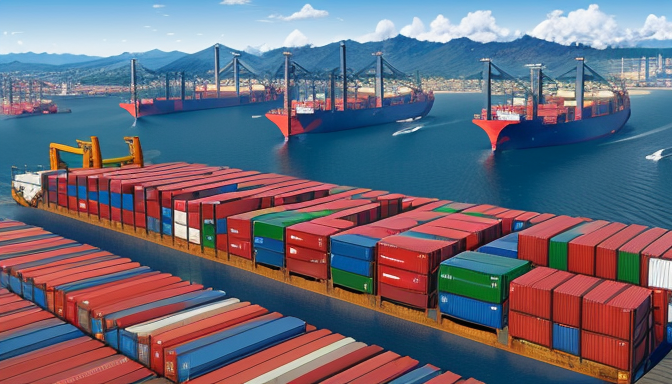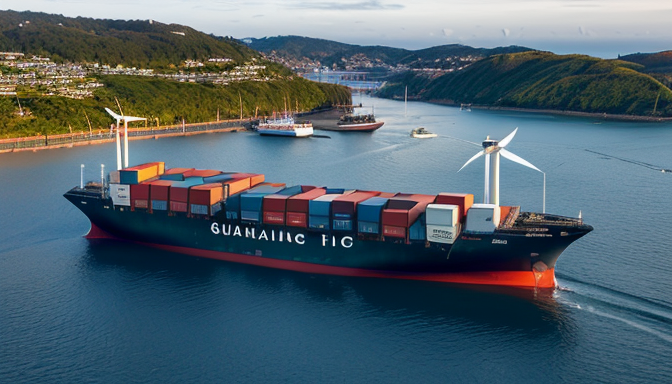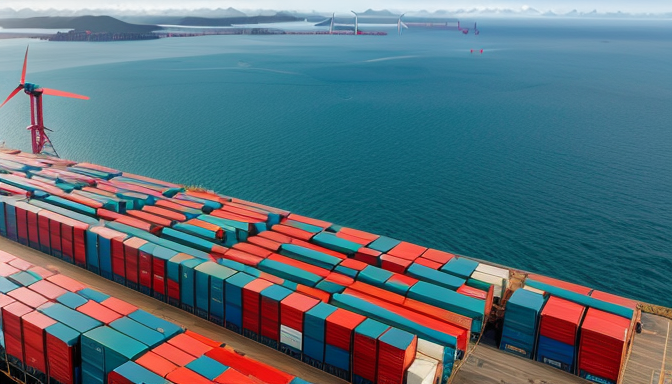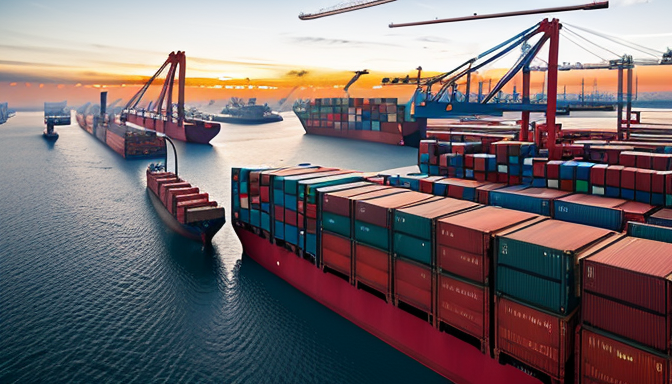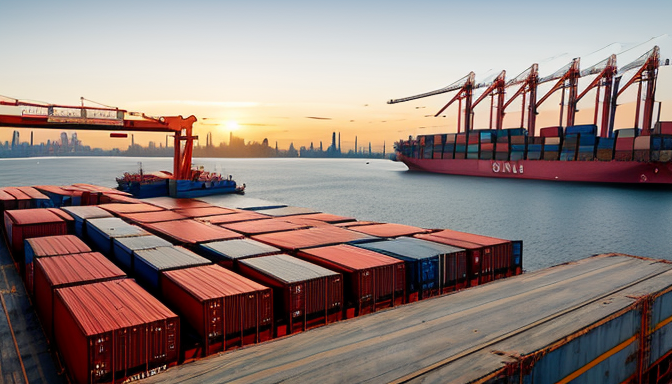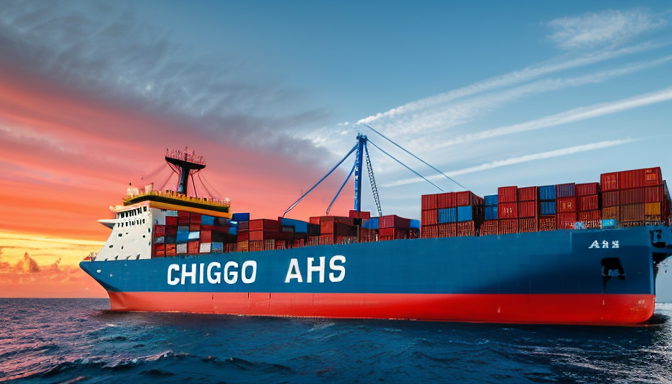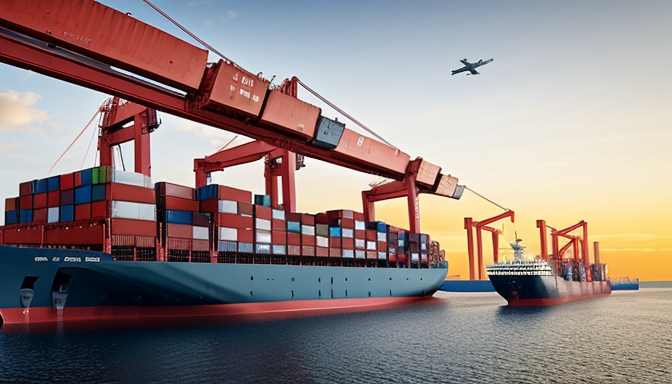How Maritime Logistics is Revolutionizing Global Trade
In today’s fast-paced world, maritime logistics is the unsung hero of global trade. Imagine a world where goods travel across oceans seamlessly, where every port is a gateway to new markets, and where technology drives efficiency like never before. This is not just a dream; it’s the reality of modern shipping. With the advent of container systems that optimize space and reduce costs, shipping has become more accessible and efficient. Each container is like a puzzle piece that fits perfectly into the larger picture of global commerce.
Moreover, advancements in port technology have taken the industry by storm. Automated cranes and AI-driven logistics systems are transforming how we handle cargo. Picture this: a ship arrives at port, and within hours, its cargo is on its way to retailers across the globe, thanks to smart technology that tracks every movement. This level of efficiency not only saves time but also reduces the carbon footprint associated with shipping, aligning with the growing demand for sustainability in the industry.
As we delve deeper into the intricacies of maritime logistics, we see that it’s not just about moving goods; it’s about connecting economies, fostering relationships, and paving the way for future innovations. The trends we observe today are shaping a new landscape of trade, where speed and sustainability go hand in hand. So, the next time you receive a package, remember the incredible journey it took across the seas, powered by the revolution in maritime logistics.
The Role of Technology in Maritime Logistics
Technology is not just a buzzword in maritime logistics; it’s the lifeblood that keeps the global trade engine running smoothly. Imagine a world where every container ship is equipped with sensors that communicate real-time data about their location, cargo conditions, and estimated arrival times. That’s the power of the Internet of Things (IoT) at work, transforming the way we perceive and manage shipping logistics. With IoT, logistics companies can monitor their vessels and cargo more effectively, reducing the chances of delays and ensuring that goods arrive safely and on time.
Moreover, the integration of Artificial Intelligence (AI) into maritime logistics has redefined operational efficiency. AI algorithms analyze vast amounts of data to predict shipping trends, optimize routes, and even forecast demand. This means companies can make informed decisions that not only save time but also cut costs significantly. For instance, by predicting peak shipping times, companies can adjust their operations to avoid congestion and minimize delays.
Another revolutionary technology making waves in the industry is blockchain. This decentralized ledger system enhances transparency and security in transactions. By using blockchain, stakeholders can trace the entire journey of a shipment, from the manufacturer to the end consumer, ensuring accountability and reducing fraud. In an industry where trust is paramount, blockchain is a game-changer.
As we look towards the future, the combination of these technologies is set to redefine maritime logistics. With advancements in container systems and port technology, we can expect faster, safer, and more efficient global shipping. The question isn’t whether technology will continue to impact maritime logistics, but rather how quickly we can adapt to these changes and harness their full potential.
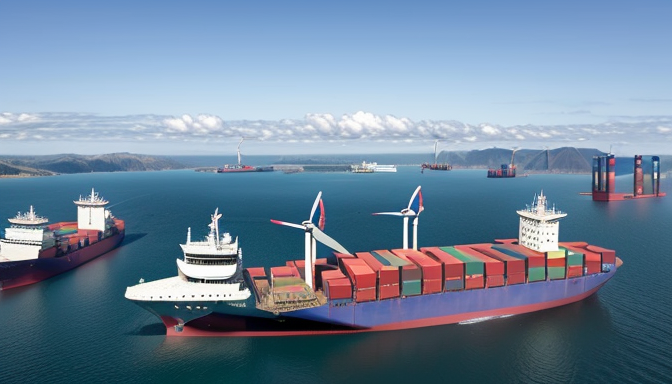
Sustainability in Maritime Logistics
As the world becomes increasingly aware of climate change and its devastating effects, the maritime logistics industry is stepping up to the plate. The sector is not just about transporting goods; it’s about doing so in a way that minimizes our environmental footprint. Imagine a massive cargo ship, once a symbol of pollution, now transformed into a beacon of sustainability. This transformation is fueled by innovations and a commitment to greener practices.
One of the most exciting trends is the adoption of alternative fuels. Traditional heavy fuel oil is being replaced by options like liquefied natural gas (LNG), hydrogen, and even biofuels. These alternatives significantly reduce harmful emissions, marking a shift towards a cleaner maritime future. Moreover, regulatory bodies are tightening the screws, pushing for compliance with international standards aimed at reducing greenhouse gases. This regulatory environment is not just a hurdle; it’s a catalyst for innovation.
Furthermore, advancements in port technology are revolutionizing how goods are handled. Smart ports utilize the Internet of Things (IoT) and artificial intelligence (AI) to optimize operations, reduce waste, and enhance efficiency. By implementing automated systems and real-time data analytics, ports can now manage resources better than ever before, leading to less congestion and quicker turnaround times.
In summary, sustainability in maritime logistics is not just a trend; it’s a necessary evolution. As the industry continues to innovate, we can expect to see a significant shift towards greener practices that will benefit both our planet and the economy. So, the next time you see a ship on the horizon, remember: it’s not just carrying cargo, it’s carrying the hopes of a sustainable future!
Frequently Asked Questions
- What is maritime logistics?
Maritime logistics refers to the planning, execution, and management of the movement of goods via sea routes. It’s like the backbone of global trade, ensuring that products reach their destinations efficiently and safely.
- How is technology changing maritime logistics?
Technology is a game changer! Innovations like IoT, AI, and blockchain are streamlining operations, making everything from tracking shipments to managing inventory a breeze. Imagine having real-time data at your fingertips—it’s like having a GPS for your supply chain!
- What are the sustainability efforts in maritime logistics?
Sustainability is at the forefront of maritime logistics today. The industry is adopting greener practices, such as using alternative fuels and improving energy efficiency, to reduce its environmental footprint. Think of it as the industry’s way of going green while keeping the trade wheels turning!
- What challenges does maritime logistics face?
Despite advancements, maritime logistics still grapples with challenges like port congestion, regulatory compliance, and environmental concerns. It’s a bit like navigating a ship through a storm—there are always hurdles to overcome!
